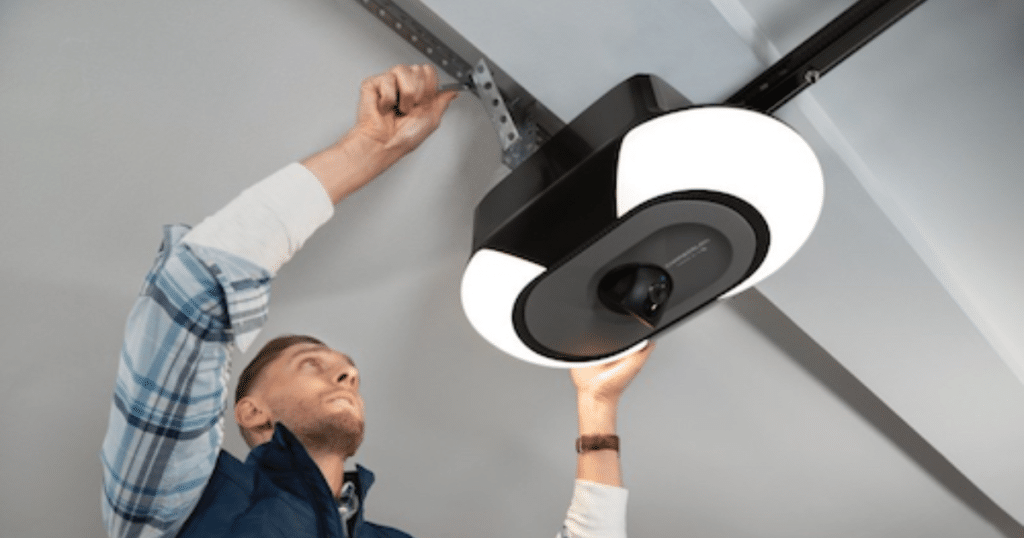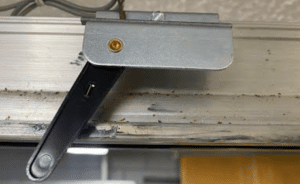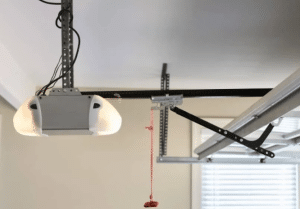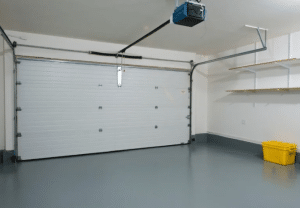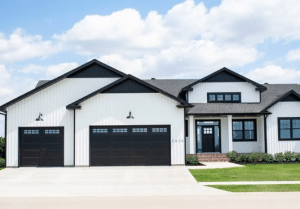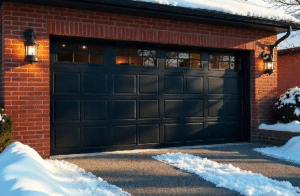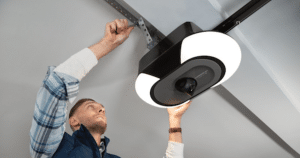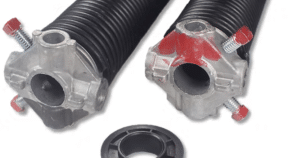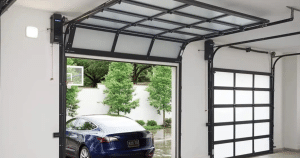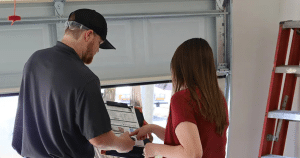Is it cheaper to repair or replace a garage door opener? Learn each option’s costs, pros, and cons to make the smartest financial decision.
A malfunctioning garage door opener can seriously disrupt your daily routine, reduce home security, and pose safety hazards. If your opener is unresponsive, makes strange noises, or operates inconsistently, you’re probably asking: Is it cheaper to repair or replace a garage door opener? Although a repair may appear cost-effective upfront, the true expense often extends well beyond the initial fix.
Several key factors influence whether garage door opener repair or replacement is better. These include the age of the opener, how often it breaks down, its current condition, and whether it includes modern features like smartphone connectivity or battery backup. Repeated repairs on an outdated system can become more expensive over time than investing in a new, more reliable opener with advanced technology.
Understanding the typical garage door opener repair cost, the price of replacement, and the warning signs of a failing unit can help you make an informed decision. If you’re unsure what route to take, contacting a professional garage door technician ensures a safe, accurate diagnosis and may save you money and hassle in the long run.
Understanding Common Garage Door Opener Problems
Garage door openers are the unsung heroes of home convenience—until something goes wrong. When your opener starts acting up, it can be frustrating and disruptive, especially if you’re unsure whether it just needs a simple repair or a full replacement. Before making that decision, it’s important to understand the most common problems affecting garage door openers and what they typically mean.
Most garage door opener issues fall into a few key categories:
- Worn-Out Gears or Sprockets: Inside the motor housing are plastic or metal gears that drive the movement of the garage door. Over time, especially in older units, these gears can wear down from repeated use. Grinding noises or the opener running without the door moving are common signs. Replacing these parts is usually affordable and straightforward for a technician.
- Faulty Circuit Boards: The circuit board functions as the opener’s “brain,” processing commands from remotes, keypads, and sensors. Power surges, age, or internal component failure can cause malfunctions like the door not responding or erratic behavior. While circuit boards can be replaced, investing in a newer model with better features and efficiency may make more sense if your opener is outdated.
- Broken Chains or Belts: Chain- and belt-drive openers rely on tensioned drive systems to move the door. A snapped chain or a frayed belt will stop the door from operating entirely. While belt replacements tend to be quieter and cleaner, both systems are generally repairable if the motor is still in good shape.
- Motor Failure: The motor is the heart of the opener. If it burns out or stops working altogether, your door won’t move, no matter how many times you hit the button. Replacing a motor can be expensive, and if your opener is over 10–15 years old, replacing the entire unit may be more cost-effective.
- Misaligned or Blocked Safety Sensors: Modern openers come with safety sensors near the base of the garage door that prevent it from closing if something is in the way. If these sensors are dirty, misaligned, or damaged, they can stop the door from closing properly or cause it to reverse unexpectedly. Luckily, this is usually a quick fix involving realignment or cleaning.
- Intermittent Remote or Wall Switch Functionality: If your opener only responds occasionally to the remote or wall switch, the issue might stem from weak batteries, interference, a faulty remote, or a problem with the opener’s receiver. Diagnosing this can be a process of elimination, but it is often one of the less expensive issues to resolve.
These problems are relatively minor and can be repaired with minimal cost and effort. Others—particularly those involving major components like the motor or circuit board—may signal that the system is nearing the end of its service life. In these cases, replacement may offer better long-term value, improved safety features, and enhanced performance.
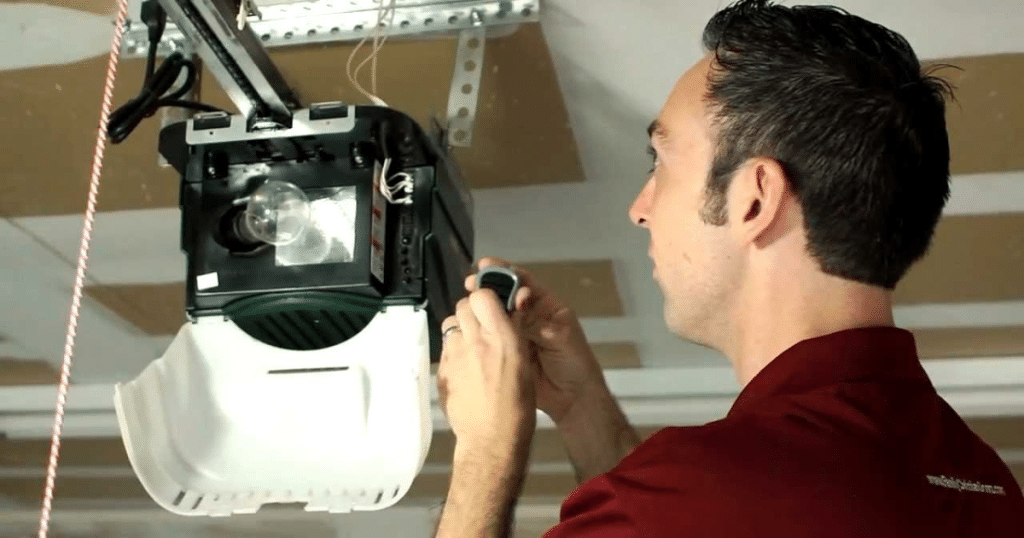
Repair Costs: When Is Fixing the Opener Worth It?
The average cost to repair a garage door opener ranges from $100 to $250, depending on the issue. Minor electrical fixes, remote replacements, or sensor realignment are usually on the lower end.
When Repairing Makes Sense
- The opener is less than 8 years old
- The issue is isolated and identifiable
- Replacement parts are available and affordable
- No history of frequent malfunctions
If you’re asking, “Is it cheaper to repair or replace a garage door opener?” and your situation checks these boxes, repairing is likely the better choice.
Replacement Costs: When a New Opener Is the Smarter Move
Installing a new garage door opener typically costs between $300 and $600, including parts and labor. While more expensive upfront, a new unit often comes with better technology, increased reliability, and extended warranties.
When Replacement Is the Better Option
- Your current opener is 10+ years old
- Multiple components are failing
- You want modern features like smart home integration or battery backup
- Safety features (like auto-reverse) are outdated or missing
A replacement might also be necessary if parts for your old model are discontinued.
Pros and Cons: Repair vs. Replace
Weighing the pros and cons of each option can help you determine which path offers the best value for your specific situation.
Repair Pros:
- Lower Initial Cost: Repairs typically cost less than a full replacement, especially if the issue is minor or isolated. This makes repairing appealing when budgets are tight or the problem is simple.
- Faster Turnaround: Most repairs can be completed within a single service visit, minimizing downtime and inconvenience, especially if the technician already has the needed parts.
- Familiarity with the Existing System: You’re already accustomed to how your current opener works. Repairing it means you don’t have to adjust to new technology or reprogram remotes, keypads, or smart home integrations.
Repair Cons:
- May Not Address Underlying Wear or Age: A repair might solve the immediate problem, but it doesn’t necessarily fix other aging components. If your opener is old, repairing one part may only delay the inevitable failure of another.
- No Technology Upgrades: Older openers lack modern features like smartphone control, battery backup, or ultra-quiet operation. If you repair instead of replacing, you’re missing out on these potential enhancements.
- Risk of Future Breakdowns: Repairing an aging or frequently malfunctioning opener can lead to a pattern of recurring issues. In the long run, these repeat repairs may cost more than simply replacing the unit.
Replacement Pros:
- Improved Long-Term Reliability: A new opener comes with fresh components, manufacturer warranties, and minimal maintenance needs. You can expect years of dependable service without the worry of older parts failing.
- Energy-Efficient and Quieter Operation: Modern garage door openers—especially belt-driven or DC motor models—are significantly quieter and more energy efficient than older units, creating a better home experience with attached garages.
- Access to Updated Features: New openers often include advanced safety features, LED lighting, built-in Wi-Fi, smartphone control, backup batteries for power outages, and more. These upgrades enhance both convenience and peace of mind.
Replacement Cons:
- Higher Upfront Cost: A full replacement typically costs more than a repair, with prices for new units (including installation) ranging from $300 to $600 or more, depending on the model and features.
- Requires Installation Time and Setup: Installing a new system may take longer than a simple repair, and you may need to reprogram remotes, keypads, and any smart home integrations you’ve previously set up.
Evaluating these points helps answer the question: Is it cheaper to repair or replace a garage door opener? Sometimes the real savings are in preventing future repairs.
Considerations Before You Decide
Here are some additional factors to weigh:
- Warranty Status: If your opener is still under warranty, repairs may be covered.
- Usage Frequency: Heavily used systems wear out faster and may benefit more from replacement.
- Home Value: An upgraded opener adds convenience and appeal during resale.
- Noise Levels: Newer models run quieter, which can be important for attached garages.
Consulting a qualified garage door technician can give you a clearer cost-benefit analysis.
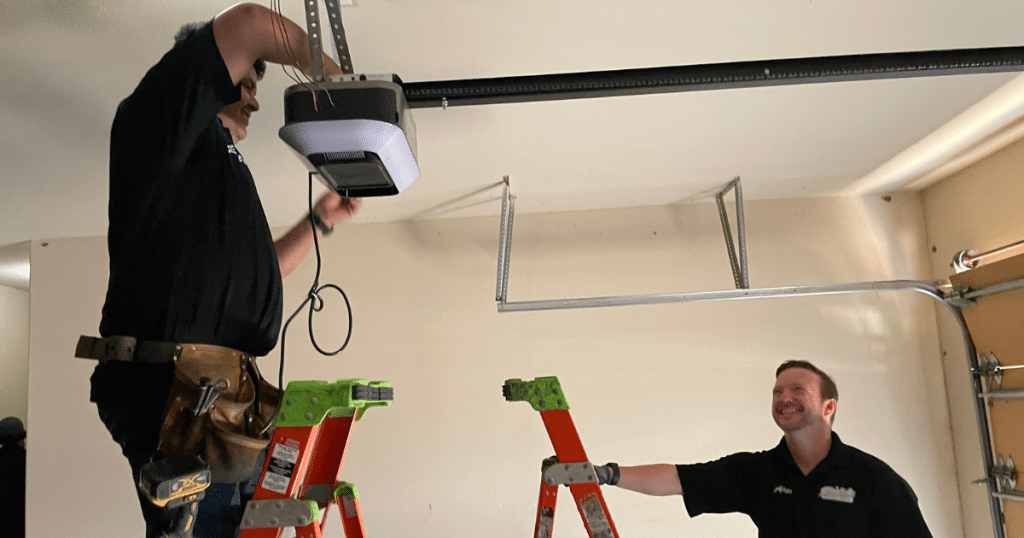
Frequently Asked Questions
Is it worth repairing a 20-year-old garage door opener?
Usually, it’s not worth repairing a 20-year-old opener. Most openers last 10 to 15 years, and newer models offer better safety and features.
What is the average lifespan of a garage door?
A garage door typically lasts about 20 years with proper care. The lifespan depends on the material, weather exposure, and how often it’s used.
How long do garage door openers last?
Garage door openers usually last 10 to 15 years. Heavy use or poor maintenance can shorten that time, while regular care can extend it.
How do I know if my garage door opener needs to be replaced?
If your opener is noisy, breaks down often, or lacks modern features like remote access, it may be time for a replacement. Slow movement or trouble opening and closing are also common signs.
Is it worth replacing the garage door opener?
Yes, replacing your garage door opener is worth it if it’s old, noisy, or missing safety features. New openers are quieter, more secure, and often come with smart technology for added convenience.
Conclusion
Are you wondering, “Is it cheaper to repair or replace a garage door opener?” The answer depends on your situation. A repair is usually more economical if the opener is relatively new and the issue is minor. However, if it’s an older model or causing frequent problems, replacing it might be the smarter investment in terms of reliability and long-term cost.
Beyond price, safety, functionality, and overall value should also be considered. A professional assessment can help you choose the most practical and budget-friendly option.
Keller Garage Doors offers expert advice and trustworthy service for homeowners in Keller, TX. Whether you need a garage door repair or a full replacement, we’re here with honest recommendations and fair pricing.
End Note
Keller Garage Doors is your trusted expert for dependable garage door opener repairs and complete replacements in Keller, TX. We provide comprehensive garage door services with professionalism and attention to detail. From essential mechanical components like hinges and floor fixtures to advanced motors, electrical systems, and modern opener technology, we handle it all with expertise and care.
Whether you need garage door maintenance or long-term garage door repairs, we expertly support residential and commercial needs.
We proudly serve all service areas, including North Richland Hills, TX, and Southlake, TX. Visit our blog for more garage door tips, or reach out via our contact page to schedule a service today.
Keller TX Garage Door
1145 Bancroft Rd, Keller, TX 76248, United States
+18176972922

